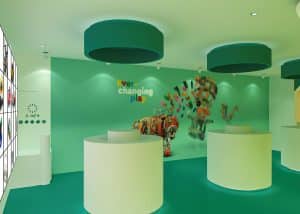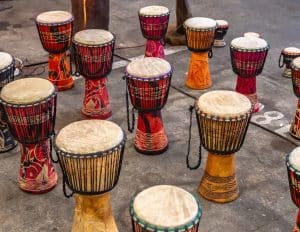Atif Rahman, Director and Partner at Danube Properties, Haleema Al Owais, CEO of Sultan Bin Ali Al Owais Real Estate, and Francis Alfred, Managing Director & CEO at Sobha Realty, joined Construction Business News Middle East’s E-Live webinar, in partnership with du, which focused on Buyer Confidence in Real Estate.

Check out our full review of what was discussed during the webinar below:
EXPECTATIONS FOR 2020
ATIF RAHMAN: The market was sluggish worldwide; however, in UAE, we were bullish for the year 2020, especially with the prospect of Expo 2020. We were all hoping that Expo’s impact was going to positively affect the overall economy and how things are done in Dubai. I was confident that Expo was going to be unique and have a tremendous effect on the economy. It would have done wonders for the real estate industry due to the nature of the event. Expo Dubai would have acted as a gateway for buyers toward the MENA market. With Expo Dubai moved to 2021, I do expect things to fall back in line with what was expected this year.
HALEEMA AL OWAIS: As Sultan Bin Ali Al Owais Real estate, coming from a heritage of real estate development where we build to rent out, our primary audience is predominantly made up of expats looking for long term rentals. That surely does not mean that we are immune to the demand and supply dynamics of residential and commercial units coming into market supply this year. But on the other hand, the same report mentions an above-average increase of 5.64% in the city’s population based on the country’s economic and leisure offerings. This number is well in line with our on-ground experience and will only increase, considering the Expo2020 and other government initiatives. In essence, the demand and supply matrix can and will stay in balance if developers are intelligent with their planning.
Furthermore, every market and metropolis has an appetite for different kinds and classes of projects. If the mix of developments between luxury/high-end, mid-market and affordable housing is in sync with the population it is designed to cater, and the UAE’s demand will always have the potential to match its supply if not exceeding it.
We are currently in the midst of introducing over 300 residential and 50 Commercial rental options across various parts of the UAE by mid-2020, which is a straightforward addition to the country’s expected consumption potential in our understanding.
FRANCIS ALFRED: We began 2020 on a positive note, including an increase in the number of real estate transactions year-on-year. We started 2020 by announcing an AED 2.5 billion sales target, following the success achieved last year, when we surpassed our total sales target of AED 2 billion. On the back of these phenomenal results last year, we were confident that 2020 would help generate strong returns.
These targets stemmed from an optimistic trend witnessed across the real estate sector in Dubai. In fact, the total value of all transactions in Dubai in Q1 2020 was at approximately AED 21.6 billion, which was two per cent higher compared to the same period in 2019.
In 2019, Sobha Realty sold a total of 1,491 units, comprising a net area of 1.23 million sq. ft, with Creek Vistas emerging as the most popular project within the development, followed by Greens and Estates villas. The high uptake from investors in 2019 supported the launch of more projects within the masterplan during the year.
COVID-19’S IMPACT IN CURRENT PROJECTS
FRANCIS ALFRED: The real impact of COVID-19 became evident in the second quarter of 2020, as transactions began to drop as a result of the pandemic. These are extremely challenging times for all of us, and we are well aware of the current market condition. At Sobha Realty, our singular focus remains the continuous development of Sobha Hartland, and all the projects within the master development, which is set for completion in 2025.
Despite the challenging times, Sobha Realty has instilled a number of measures to ensure the wellbeing and safety of its staff and maintained a steady pace in its construction activities, ensuring timely deliveries. With a reputation of offering the highest quality of residences and timely project deliveries, we are proud to have managed this phase with minimal disruptions to our construction operations and we are on schedule to hand over a series of projects within the Sobha Hartland development.
The construction for Gardenia Villas Phase II and Hartland Greens Phase III are moving forward as per schedule and are 90% complete for timely handovers within the year. While our sales offices have been closed, in accordance with the directives of the UAE government, we remain accessible to potential customers through our online channels. We have conducted virtual reality tours, online video conferencing, and offered digital brochures and online transaction options to help buyers have a better and more seamless experience with us
HALEEMA AL OWAIS: We have two projects under development, and we intend to complete them as per plan.
Sure there have been challenges with reduced working hours and reduced mobility by some, but we intend to make up for that lost time in any way we can because if there is anything we have learned from COVID 19, it is to respect time as we don’t have enough if it. And besides stalled projects in a time like this serving as dead CAPEX on our balance sheet, which is not the best idea under any circumstances. I consider ourselves to be in the business of necessity, and as long as there are habitats and roofs needed, all that the real estate industry needs to do it reboot itself to match its circumstances and keep moving.
ATIF RAHMAN: I foresee a couple of issues that would impact the market, and one of the critical things to combat in this crisis is accepting the reality of the situation. Two key challenges that every company would face are the cash flow and the supply chain, as these two factors could either delay or halt a particular project.
During the lockdown, all my sites were hyperactive; I had more than 6,000 people working on various construction sites and were not feeling the impact. Although, when it came to the supply chain of materials there was impact on that front, due to the factories overseas being impacted.
There is only so much local manufacturing you can do in the UAE. We rely heavily on overseas import of goods, especially on the finishing parts of the project. That needs to be mitigated and needs to ensure that materials are being delivered to our sites on time. Also, as we progress into this crisis, we need to consolidate the business, and as a developer, we need to reduce exposures on new projects and focus on delivering the ongoing projects
A LOOK INTO BUYER BEHAVIOUR AS A RESULT OF COVID-19
HALEEMA AL OWAIS: I will presume buyers as renters based on what we do, and yes, I would most definitely agree, and we have seen a 40% increase in inquiries/demand for specific types of properties.
Traditionally, studios and smaller units are known to be highest in demand and the quickest to rent out, but most inquiries between March and April 2020 with us have been for bigger, groups specifically those with balconies.
The shift in tenant and rental – seeker behavior is quite remarkable and evident at the same time.
Lately, we have had a particular surge in families looking for villas with large outside areas and especially spacious apartments with balconies, to aid the socially distancing shift in everyone’s lifestyle and increase in Stay at Home activities.
ATIF RAHMAN: The first reaction you would get is naturally is panic, and my advice to everyone who has invested or planning to invest is not to panic. It’s a natural cycle that every economy is going to go through. In UAE especially, due to the size of the economy, the fantastic infrastructure for investors, and the regulations that were laid out for over a decade, will ensure the UAE will come out of this crisis stronger.
We have seen this before in 2008/2009, due to the worldwide recession and financial crisis, investors had written off the region, but the UAE was one of the first to bounce back from this economic crisis. The UAE government spending on our infrastructure never stopped due to the crisis and now with the type of catalyst developed by the government in terms of local indigenous developments when it comes to iconic projects will father add to the attractions of the UAE. You will see the UAE market trending upwards for sure. There will be temporary trends where people may consider changing their buying behavior from one property to another property. In the meantime, long term, we should be focusing on developing quality real estate and reinforcing the regulatory framework, and the consumer confidence will only continue to grow in UAE.
FRANCIS ALFRED: We expect to witness a temporary decline in activity, with fewer number of buyers in the market and a vast majority of them taking a more cautious approach.
Over the past couple of months, with social distancing guidelines in place, the real estate sector has embraced digitization and created digitally enabled services for investors and end-users. Accessibility, sustainability, affordability, and quality services are some trends that are witnessing greater demand from the buyers.
We are also seeing consistently low interest rates being offered, with the mortgage gap reduced by 5 per cent for first time homebuyers and investors. We expect these sops to have a positive impact on the market.
RECONSIDERING DESIGNS OF FUTURE PROJECTS
ATIF RAHMAN: When it comes to residential properties, I don’t think there is a phenomenal change in our homes as we continue to live in our conventional homes built over the last decade or so. In terms of common areas, we can incorporate useful health measures that have been implemented during this crisis. On the commercial side, there would be a phenomenal change, take, for example, the hospitality sector, you need to revisit how that sector’s real estate is looked at. We have to clearly distinguish between seasonal trends or temporary trends that may develop out of this crisis versus the more permanent changes that may occur as a result of this crisis. There will be changes in how the offices are looked at, and again I believe this is a balancing act, and it is too early to establish a formidable trend in terms of what changes we might have to make and deliver. We might have to wait a couple of quarters to understand how businesses are changing their necessities and requirements in terms of commercial real estate.
FRANCIS ALFRED: At Sobha Realty we have always raised the bar higher and set ourselves challenging goals in terms of the standard and quality of our products and the unfailing commitment to flawless craftsmanship. We also believe that all crisis lead to greater transformation and already the COVID-19 pandemic has highlighted a greater demand for many design features, including Indoor recreation areas, less preference for open floor plan, spacious balcony/terraces and natural lighting, enhanced vertical transport to avoid queuing, integrated open usable spaces with amenities such as private pool and automation features such as contactless elevator button and door handles.
Buyers are also looking for workspace within home and community areas with restricted access, as well as outdoor spaces that are an extension of indoor spaces.
The real estate sector isn’t just about selling space but selling intuitive living places that answers the demands of the greater community and keeps individuals feeling secure, happy and safe.
HALEMA AL OWAIS: I recently wrote a short paper on Post Coronial Real Estate Landscape, and I particularly feel that Real estate companies have withstood the test of time in the past and we all know from experience that there is no reward in being a spectator in a time like this
We all agree that the UAE government is playing its part, and now companies operating in the sector have to stay vigilant and be prepared for the new normal post-COVID-19 which will transform how people finance, operate and occupy real estate.
As we are discussing these issues in just a few weeks, homes have turned into a place where we also work from, study, workout at, and more people are likely to be mindful of these times and want homes suitable for all purposes, and everyone occupying them.
I was going through a survey by McKinsey where it said that consumers are experiencing a decrease in income and with reduced income follows the preference for affordable housing increases, but some people have been putting off investing in a home and have the savings to support it now.
Those people are likely to opt for housing options that offer excellent quality of life and amenities to support stay at home if they need to.










